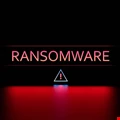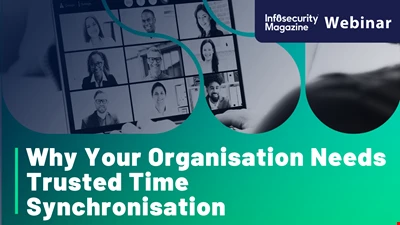Infosecurity News

Iranian Cyber Threat Actor Targets Iraqi Government Officials in AI-Powered Campaign
Zscaler ThreatLabz assessed with medium to high confidence that an Iranian adversary targeted Iraq’s Ministry of Foreign Affairs in a new cyber-attack

Chrome Unveils Plan For Quantum-Safe HTTPS Certificates
Google Chrome initiates quantum-resistant measures via Merkle Tree Certificates to secure HTTPS

Expect Iran to Launch Cyber-Attacks Globally, Warns Google Head of Threat Intel
John Hultquist suggests “aggressive” Iranian cyber attackers will target the US and its Gulf allies with plausibly deniable ransomware attacks, hacktivist campaigns and more

Hybrid Middle East Conflict Triggers Surge in Global Cyber Activity
Military strikes in the Middle East escalate cyber ops, raising spillover risks globally for firms

ClawJacked Bug Enables Covert AI Agent Hijacking
Oasis Security reveals how a new ClawJacked vulnerability could allow attackers to silently take over a victim’s OpenClaw agent

Ransomware Payments Decline 8% as Attacks Surge 50%
Chainalysis reveals a big surge in median ransomware payment size in 2025 despite overall drop in criminal revenue

North Korea's APT37 Expands Toolkit to Breach Air-Gapped Networks
The security researchers from Zscaler ThreatLabz have also discovered five new tools deployed by the North Korean hacking group

UK Vulnerability Monitoring Service Cuts Unresolved Security Flaws by 75%
The UK government says its new Vulnerability Monitoring Service has cut unresolved security flaws by 75% and reduced cyber-attack fix times from nearly two months to just over a week

‘Project Compass’ Cracks Down on ‘The Com’: 30 Members of Notorious Cybercrime Gang Arrested
International law enforcement operation led by Europol targets network of teenagers and young adults involved in ransomware attacks, extortion and other crimes

Aeternum Botnet Shifts Command Control to Polygon Blockchain
New botnet Aeternum shifted C2 operations to Polygon blockchain, complicating takedown efforts

Darktrace Flags 32 Million Phishing Emails in 2025 as Identity Attacks Intensify
2025 saw 32M phishing emails, with identity threats surpassing vulnerabilities

Exploitable Vulnerabilities Present in 87% of Organizations
Datadog report reveals two-fifths of services are affected by exploitable bugs

UK's Data Watchdog Gets a Makeover to Match Growing Demands
The UK’s Information Commissioner's Office is about to ditch single-leader model for CEO and board in a major shake-up

Google Disrupts ‘Prolific’ and ‘Elusive’ China-Linked Global Hacking Campaign
UNC2814 hit 53 victims in 42 countries with novel backdoor in decade long cyber espionage operation

Global Cyber Agencies Urge Immediate Patching of Cisco SD-WAN Zero Day
The US and allies are urging Cisco Catalyst SD-WAN customers to hunt for signs of exploitation

44% Surge in App Exploits as AI Speeds Up Cyber-Attacks, IBM Finds
IBM's 2026 X-Force report reveals 44% rise in cyber-attacks on public apps, driven by AI and flaws

Malicious NuGet Package Targets Stripe Developers
Malicious NuGet package mimicking Stripe's library targeted developers

Former Defense Contractor Boss Gets 7+ Years for Selling Zero Days
A former general manager of a US defense contractor has been sentenced after selling zero days to Russia

ICO’s £14m Reddit Fine Highlights Age Check Privacy Concerns
The UK’s ICO has fined Reddit over £14m for failing to use children’s personal information lawfully

Cost of Insider Incidents Surges 20% to Nearly $20m
DTEX claims insider incidents cost $19.5m in 2025, with employee negligence most expensive



